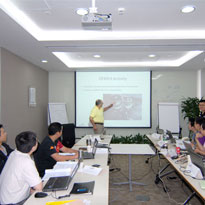TETRA
- Course:TETRA
- Course ID:TETRA Duration:3 days Where: Your Office (7+ Persons)
- Download Course Description (PDF)
Available as a private, customized course for your group at your offices or ours and in some cases as a WebLive(TM) class.
Course Outline
- Introduction
- Trunked mobile communications
- Concepts and benefits of trunking
- Trunk mobile systems compared (iDEN, Tetrapol)
- TETRA technology
- ETSI standardization
- The TETRA MoU
- TETRA equipment and systems
- Features and Services
- TETRA features
- Bearer services, teleservices, supplementary services
- Voice and data services
- Circuit-switched and packet-switched data
- IP packet data
- Short Data Service (SDS)
- Direct Mode Operation (DMO)
- Trunked Mode Operation (TMO)
- Support for Value Added Services (VAS)
- TETRA applications
- Spectral efficiency
- Security aspects
- TETRA Architecture
- BS, LSC, MSC, LS, MT, TE
- TETRA network and standard interfaces
- Standard gateways
- Trunked mode air interfaces
- Inter System Interface (ISI)
- Terminal Equipment Interface (PEI)
- Line Station Interface (LSI)
- Network Management Interface (NMI)
- Direct Mode Air Interface (DMAI)
- Gateways to public networks
- TETRA Direct Mode Operation (DMO)
- Gateway mobile station
- Repeater station
- Addressing, Numbering, Dialing, and TETRA MMI
- Numbering and addressing
- TEI, MNI, TSI, SSI
- GTSI, ATSI
- Leading digit dialing
- Call scenarios
- TETRA IP
- TETRA Air Interface
- Spectrum allocations and channel assignments
- Physical and logical channels
- TDMA structure
- Medium Access Control (MAC) sublayers
- Logical Link Control (LLC) layer
- Frame, slot and burst structures
- Air interface message sets
- Idle mode/dedicated mode procedures
- Power budgets and range estimation
- Cellular capacity issues
- TETRA Voice Coding
- ACELP coding
- Speech vs. transmission frames
- Interfaces to other voice systems
- Voice transcoding
- TETRA and Data Networks
- Circuit mode data operation
- Packet mode operation
- X.25, TETRA data services, SCLNP
- Inter-network protocols
- TETRA IP
- Interworking with IP networks
- TETRA over IP solutions
- TETRA Security and Billing
- Overview of TETRA security requirements
- Authentication, Encryption
- End-to-end encryption
- Billing in TETRA networks
- TETRA Physical Layer
- Frequency allocation
- Carrier frequencies and radio channel numbers
 /4DQPSK modulation
/4DQPSK modulation- Frame, slot and burst structures
- Synchronization
- Frequency reference
- Transmission delays
- Scrambling
- Power control
- Channel quality measurement
- Physical layer performance
- Emissions and interference
- Area coverage techniques
- TETRA Data Link Layer
- LLC and MAC sublayers
- Coding and interleaving
- FEC and error detection
- Channel coding for data and signaling
- Coding parameters
- Stealing
- Random Access (RA)
- Logical channel routing
- System modes: Normal, extended, minimum, discontinuous
- Mobile station modes: Idle, signaling and packet data, traffic, economy
- TETRA Network Layer
- Network layer concepts
- TETRA network layer
- TETRA protocol stacks
- Mobile to base link
- Mobility management protocols
- Circuit mode operation
- Packet mode operation
- X.25, TETRA data services, SCLNP
- Inter-network protocols
- TETRA System Design and Deployment
- Capacity in the air interface/core network
- Deployment issues
- Network management issues
- TETRA and Public Mobile Systems
- GSM services and features
- Comparison of TETRA and GSM
- Convergence of TETRA and GSM
- Evolution of TETRA towards 3G services
- Unifying TETRA and UMTS
- Course Wrap Up
- Future developments in TETRA technology
- Course recap, Q&A session, and evaluations
Course in a Nutshell
TETRA networks exist in many countries to meet the specialized communications requirements of the public safety community. While less widely deployed than other technologies, TETRA is an important component of the world-wide mobile communications infrastructure.
In this course, you will learn how the TETRA architecture compares with that of other technologies, helping you identify its strengths and limitations vis-à-vis particular applications. You will also study the TETRA air interface in a good deal of depth. TETRA includes some unique capabilities aimed at the public safety community, e.g., it can provide immediate, simultaneous connectivity to a subgroup of users, while maintaining their communications private from the larger organization. Upon completion of this course, you will have a good understanding of TETRA’s unique functionality as well as the design and optimization challenges posed by it.
Customize It!
Customize the course to your specific needs at little-to-no additional cost. We offer distinct versions of this course tailored for audiences such as network design and optimization engineers, equipment or application designers, and less technical audiences such as management, sales/marketing, and operations/support personnel.
Aimed At
This course is aimed at technical audiences who need a comprehensive technology overview of TETRA.
Prerequisites
- "Truly top notch! Very experienced, outstanding instructor. Liked the extensive knowledge of the instructor and the manner of presentation, also the overall quality of the material and the illustrations which supported the information presented. Very articulate and professional, and very patient with explaining the course material." – Technical Services Provider
- "Wide range of topics related to TETRA covered. Excellent instructor, great subject matter expertise. Course book, with slides and notes, is great reference. Good info, great instructor; thank you for a professional course!" – Technology Consulting Company
- "Liked coverage of how TETRA works, architecture, security. Instructor very knowledgeable, willing to talk outside of lectures. Smart guy! Very detailed notes, well organized, one of the best I have seen, very useful! Class very well run, nice facility, great instructor." – Provider of Services to US Government

